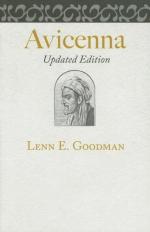|
This section contains 1,325 words (approx. 5 pages at 300 words per page) |

|
SOURCE: "Ethics in Medieval Islamic Philosophy," in The Journal of Religious Ethics, Vol. 11, No. 2, Fall, 1983, pp. 224-39.
In the following excerpt, Butterworth discusses Avicenna's moral and political philosophy.
[Avicenna's] writing takes the form of essays about Aristotelian treatises and themes, essays which explore the subject of the treatise or the theme itself in such a manner that one learns far more about Avicenna's opinions than about what he thinks Aristotle was trying to explain. For example, in his multi-volume Shifā (or Healing)—a work divided into four major sections, somewhat along the lines of Aristotle's account of the sciences, and each section further divided into parts which frequently bear the names of Aristotelian treatises—Avicenna explains what he understands of these sciences or arts with nary a reference to Aristotle. Much of the rest of his writing presupposes the importance of the Shifā insofar as it summarizes or...
|
This section contains 1,325 words (approx. 5 pages at 300 words per page) |

|


